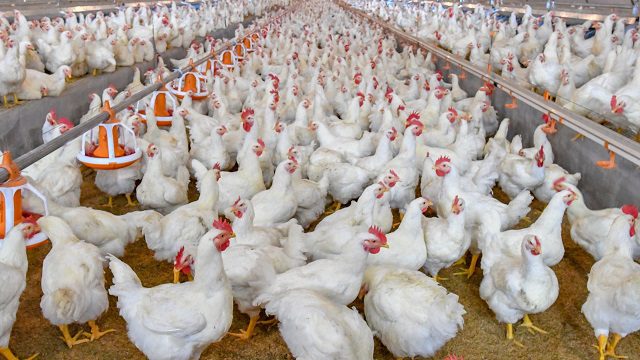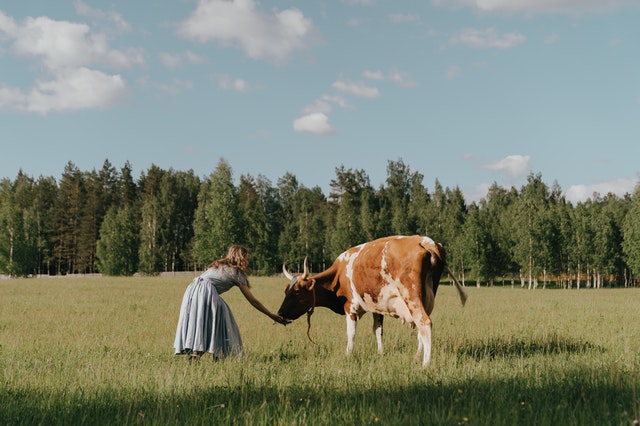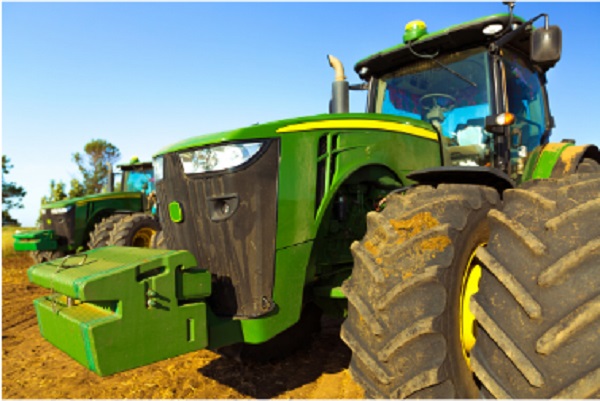Are you wondering how profitable is broilers farming in Kenya? In this blog post, we detail the costs and the profits you will get for raising 100, 200, 500 or 1,000 chickens chicken for white meat
Broiler chicken farming is one very profitable farming if you do it correctly. Numbers suggest that the domestic per capita consumption of poultry meat is 0.6 kilogram per person each year in Kenya. Its gross demand is over 35,000 tons of meat annually.
Meat Chicken Market in Kenya
- Select Characteristics of Broiler chickens
- Assumptions for a broiler poultry farm Profits Analysis
- Costs and profits of 100 broilers farming
- Costs and profits of rearing 200 broilers in Kenya
- costs and profits of rearing 500 broilers in Kenya
- Costs and profits of rearing 1,000 broilers in Kenya
- How to make more profits in broiler farming
The broiler market in Kenya had 2.91 million broiler chickens, according to the 2019 census results. Most farmers raise them commercially in intensive methods for meat only. It is a concentrated in most urban and peri-urban areas of Nairobi, Ruiru Mombasa and Kisumu which has the highest demand.
Related: How profitable is Layers farming in Kenya
Broilers have special needs from chick level to maturity. You will follow a strict feeding and vaccination program for best results. You can produce and market individually or enter a contractual arrangement in an out-grower scheme.
Select Characteristics of Broiler chickens
Wondering what is the appearance, weight or how long do broilers take to mature? Following are common characteristics of hybrid broiler breeds in Kenya
- Most have white feathers. However, specialists suggest that any chicken raised for meat is a broiler.
- A mature broiler weighs around 500 grams.
- The hybrid and exotic birds are highly vulnerable to infections and diseases than other chicken breeds.
- You will keep both cocks and hens since all of them provide meat.
- The Fryers or broilers take 42-50 days (7 weeks) to mature.
Assumptions for a broiler poultry farm Profits Analysis
The analysis uses the current market prices for farm inputs and labour and final products. It also makes the following assumptions for chicken feed quantities required and the vaccination schedule.
- The selling prices for a mature broiler chicken and a bag of chicken manure are Ksh 450 and Ksh 30, respectively.
- There is analysis a 2 % anticipated loss of chickens during the production period.
- The buying price of one-day-old chicks is Ksh 100 from major poultry farms like Kenchic. The brooding period is 21 days using kerosene lamps. A single one will provide enough warmth for 100 chicks. Each will use 6 liters of kerosene, at Ksh 85 per liter according to the Energy regulatory commission (ERC). An alternative is using a 100 watts electricity bulb.
- Follow the vaccination schedule as provided in the analysis.
- You need starter and finisher commercial chicken feed;
- 100 g of broiler starter feed per chick for the first three weeks (10 kg for 100 chicks per day for 21 days). The cost of buying a starter feed is Ksh 3,800 70kg bag.
- 180 g per bird from 4th to 6th week. (18 kg for 100 birds each day for 2nd-50th day) of broiler finisher feed. The cost of growers mash is Ksh 3,700 for a 70kg bag.
- The cost of labor to hire one person is Ksh 4,000 per month. You will need one for 1.5 months. For raising many chickens like 1000 birds, use at least two workers.
- You need a round feeder for every 30 chicks and a one round drinker for 50 chicks.
Costs and profits of 100 broilers farming

The following is the projected revenue and cost of raising 100 broiler chicken in Kenya. The analysis uses the current market prices and standard feed and nutrition requirements.
Your overall sales revenue after selling mature birds and poultry manure are Ksh. 44,250. It assumes a loss of two per cent loss of the birds. Poor feeding, hygiene and vaccination can lead to more losses. Observing better farm practices like disinfecting poultry houses and value addition will give you more sales revenue in the long run.
You will need Ksh 42,670 to raise 100 broilers chicken without the capital (fixed) costs. The large portion, 95 per cent, is for buying chicken feed. You will spend fewest amounts on vaccines and treatment at Ksh 580 only.
The gross revenue for raising100 meat birds is Ksh 1,580. After a further deduction of Ksh 6,000 additional cost of labour, you will get a net loss of Ksh 4,420.
A beginner in poultry keeping will incur an initial capital investment of Ksh 71,870. It will be for constructing a chicken house, getting brooding equipment and other reusable items like waterers and feeders.
Costs and profits of rearing 200 broilers in Kenya

The following is a cost-benefit analysis (CBA) for raising 200 broiler chickens in Kenya. It uses the current market prices and the above-given assumptions.
The revenue of selling mature broilers as live birds and poultry manure is Ksh. 88,500. The bulk of it is after selling live birds as the primary product and Ksh 300 from marketing manure as the by-product.
The large portion of the operating costs of raising them is buying broilers feed at Ksh 62,760. The total operating cost of the project is Ksh 84,990 to get a gross profit of Ksh 3.510. Similar to raising 100 chicken, the labour cost is Ksh 6,000 to get you a net loss of Ksh 2,490.
As a beginner, you will incur a one-time capital expenditure of Ksh 143, 740.
costs and profits of rearing 500 broilers in Kenya

The following is a projection of revenues and costs of raising 500 broiler chicken in Kenya. The analysis uses the current market prices and the above assumptions for feed quantities and vaccines.
The gross revenue for 500 broiler poultry farm is Ksh 221,250. Significant sales are from selling 490 live birds at Ksh 450 each.
The operating costs for raising 500 broiler chicken are Ksh. 213,580. It will give you a gross profit of Ksh 7,670 and a net profit of Ksh 1,670 after deducting labour costs of Ksh 6,000.
As a startup venture, you need a capital expenditure of Ksh 276.750 for a fully functional 500 chicken house. The overall costs and profits for keeping 500 broiler chickens are as shown above.
Costs and profits of rearing 1,000 broilers in Kenya

The following is a gross margin analysis for a 1,000 broiler chicken farm. It uses the current market cost, prices and the above assumptions required farm inputs and labour.
You will get a total revenue of Ksh 442,500 after marketing your live birds and poultry manure.
The operating cost for your 1000 chicken farm is Ksh. 431,800 excluding the one-time capital expenditure of Ksh 453,500 for beginners. The most significant expense is buying commercial chicken feed at a value of Ksh 313,800.
Read Next: How profitable is Kienyeji chicken farming in Kenya?
The projects’ gross revenue is Ksh 10,700. The only additional cost is labour at Ksh 6,000 getting you a net profit of Ksh 4,700. The overall benefits for keeping 1000 layers are as shown above.
How to make more profits in broiler farming
Are you looking for strategies to make more money as a broilers chicken farmer? You can consider the following 13 tips to make extra profits as chicken farmer in the YouTube Video below. They include
- Stagger your production to have up to to seven (7)* broods in an year. If you have a capacity of 100 birds, you can raise 700 birds in an year compounding your profits 7 times. (Assumption is that you allow 21 days to fumigate and sanitize the poultry house before introducing the next flock and produce for 49 (52-3) weeks of active production.)
- Slaughter and market dressed chicken meat since value-added products fetch more profits than live birds.
- Apart from manure, sell other by products like feet, gizzards and heads which is a delicacy in street food shops.
Did you Like the Post? Let us know below
Agcenture.com is your best agriculture, food & health blog.
Thank you for following us on Facebook, Twitter (X), LinkedIn, YouTube, and WhatsApp @ Agcenture for the latest updates.




Dear Sir,
I am from Sri Lanka , and we would like to invest in the Kenya Poultry industry with world best Technology from Europe and USA . Please share more information on how can we invest successfully in Kenya’s poultry industry
Best regards,